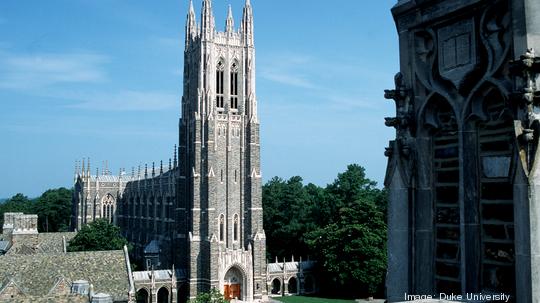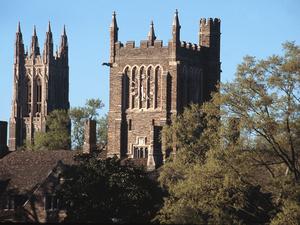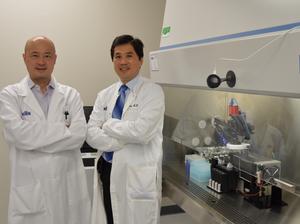
A Duke University spinout developing biomaterials to address challenges around reconstructive surgeries is preparing to test its technology in clinical trials.
InSoma Bio recently wrapped up a nearly $3 million funding round to support the company's progress into its first clinical trial later this year.
The company is led by CEO Stefan Roberts, who graduated from Duke in 2018 with a doctorate in biomedical engineering. Roberts was conducting exploratory lab work at Duke when he came across the technology that would serve as the basis for forming the company.
Roberts founded inSoma with Ashutosh Chilkoti, chair of Duke's Biomedical Engineering Department, and Dr. Scott Hollenbeck, a former Duke professor who now serves as chair of the Department of Plastic and Maxillofacial Surgery at the University of Virginia.
InSoma is developing an elastin-based biomaterial with a focus on improving the process of fat grafting. This is when fat is removed from one area of a person's body to create tissue for another area.
This process has its flaws, such as the potential loss of structural integrity, leading to patients requiring multiple procedures, Roberts said. InSoma is developing its technology to address these sorts of challenges. The company is developing an injectable biomaterial based on elastin, a protein naturally produced in the body that helps organs and tissues stretch.
The company's technology can be combined with fat to form a mixture that remains liquid in room temperature. After its injected into the body, the technology transitions from a liquid to a solid, with the intention of more safely and accurately rebuilding a person's tissue.
"Most of the products in the fat grating space are about processing," Roberts said. "The technology, you can make small improvements, but you can’t make giant leaps. What we believe we are is the next giant leap in fat grafting."
InSoma's initial focus for its technology is surgical reconstruction for women with breast cancer. The company is wrapping up preclinical work before advancing its technology into clinical trials this year, with an initial focus on evaluating its safety before advancing to patient populations.
"Even though we were technology-based to start with, we’re a very patient motivated company," Roberts said.
This initial clinical work will be supported by a $2.8 million seed round the company closed last year, Roberts said. This followed a previous pre-seed round of $1.8 million, which was led by Duke Capital Partners formerly called Duke Angel Network.
The company since its founding has also received about $5 million in federal grants to develop its technology, with about half of the funding coming from the National Cancer Institute – part of the National Institutes of Health. The company has also secured grant funding from the National Science Foundation.
InSoma's existing capital will support this initial clinical push, which will help the company generate clinical data that could help with another capital raise that supports the technology through the rest of the clinical development process, Roberts said.
As it focuses on its lead indication, inSoma also sees opportunities for its technology in other areas, like facial reconstruction or damaged nerves.
Roberts is leading a team of about 10 employees, with support of a board of advisers. The company operates out of spaces at Bridge – a Duke incubator – and BioLabs North Carolina, both of which are located at the Chesterfield building in downtown Durham.


